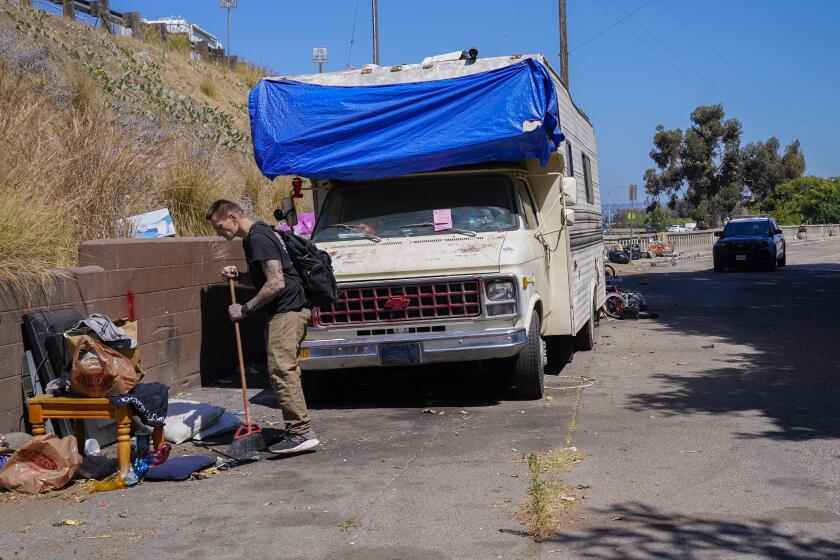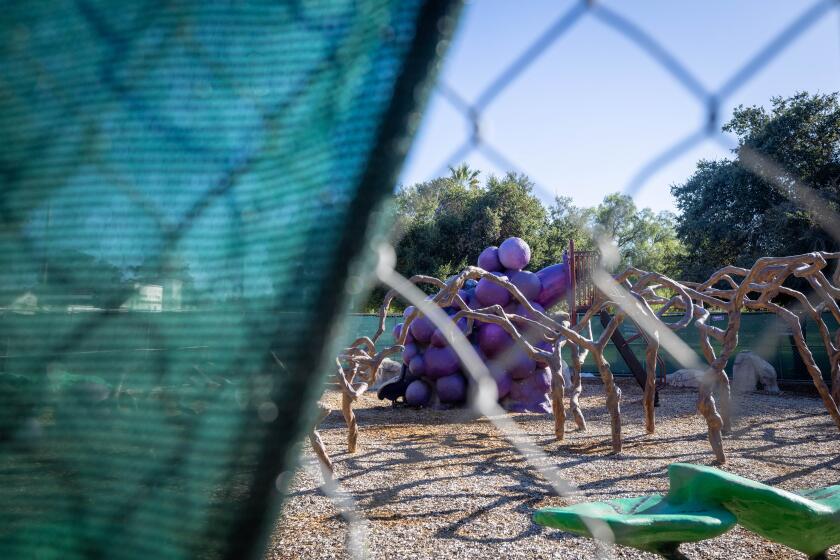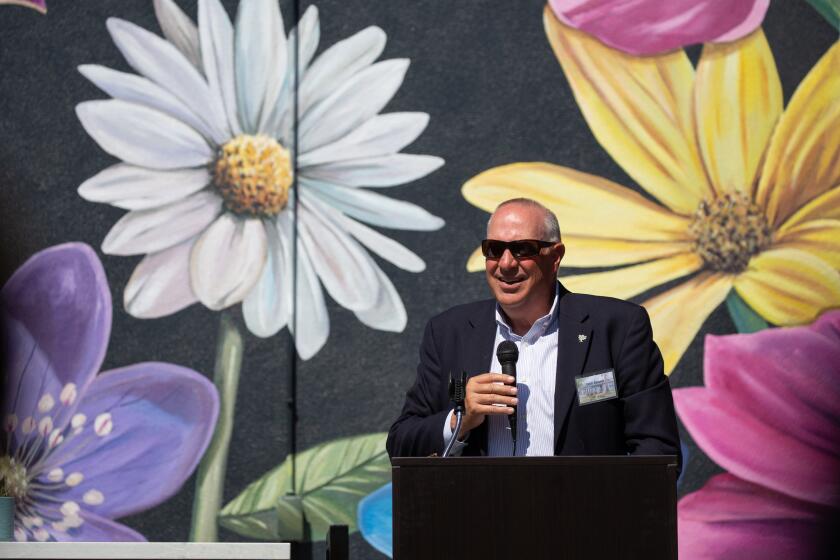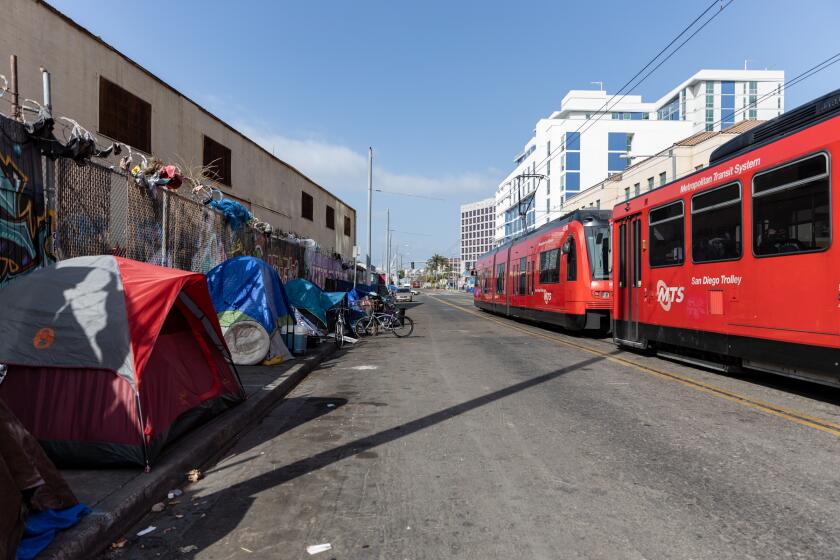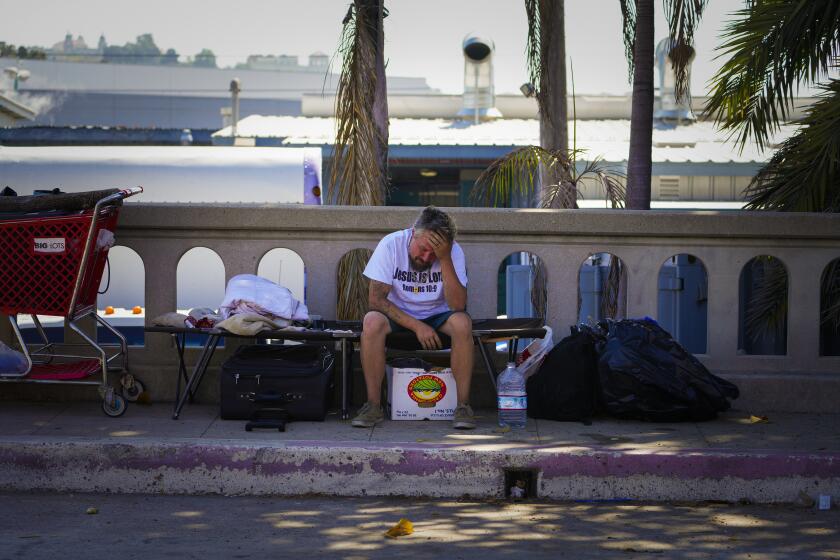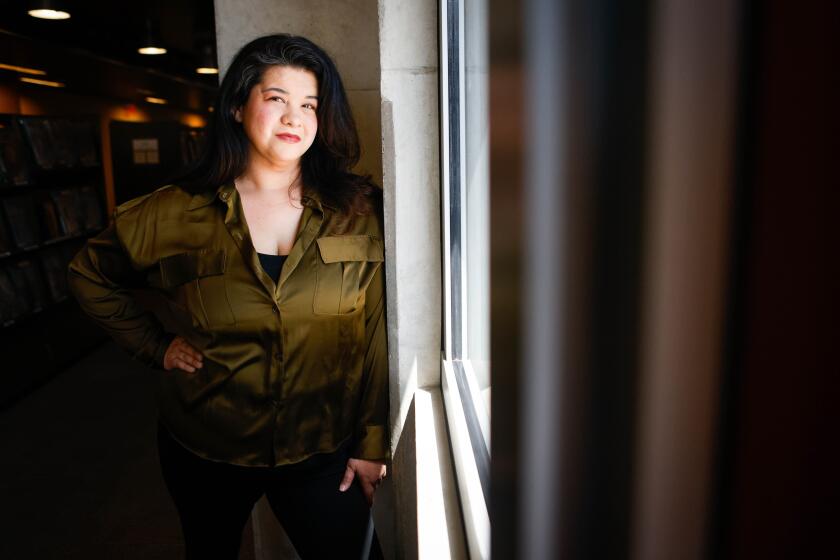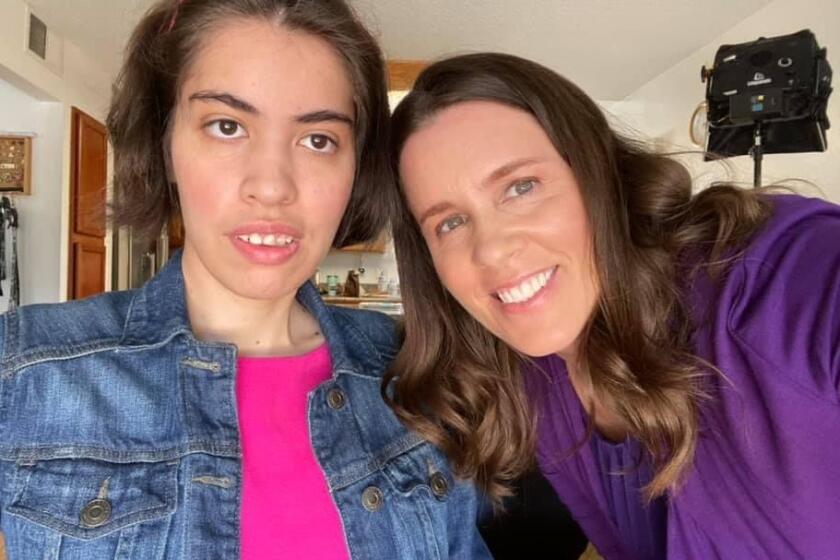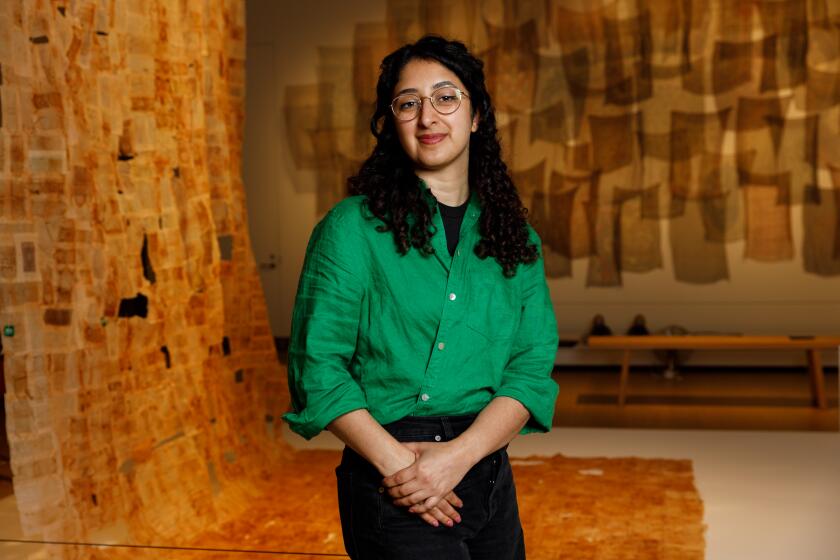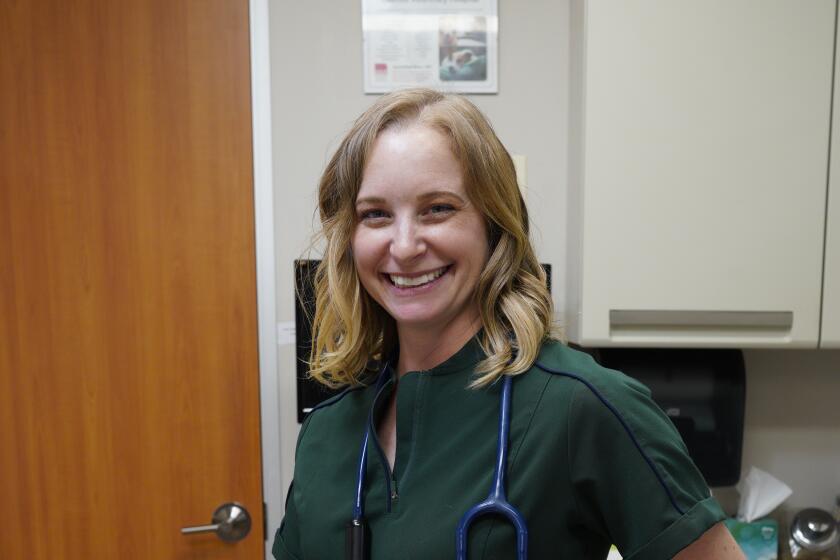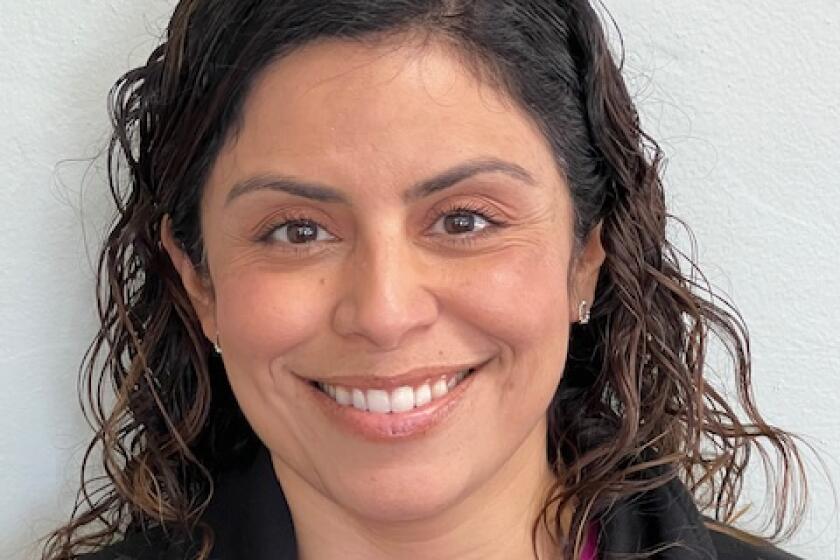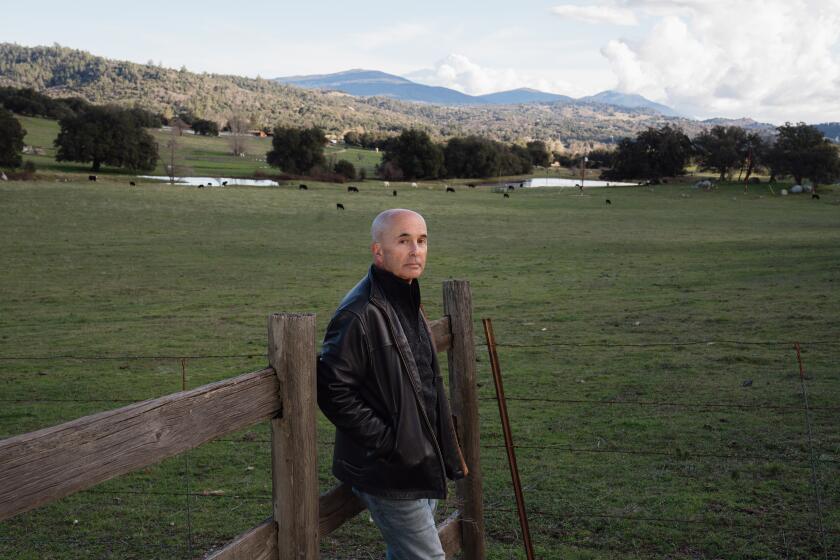Human trafficking survivor helps others
San Diego woman helps others understand plight of prostitute
Tiffany Mester hopes that when people look at a prostitute, they will see a victim instead of someone trying to make easy money or feeding a drug habit.
She ought to know.
At age 13, she was pulled into the world of prostitution and human trafficking.
She and her half-sister ran away from their troubled home at the time. Mester, now 24, remembered her half-sister saying afterward: “‘You know you have to earn your keep.’ So she pointed me to the street and said, ‘I’ll show you what to do.’”
That ordeal eventually led to more sexual oppression and abuse from the hands of a pimp, months in juvenile hall and a gradual journey of healing.
Mester now lives in San Diego, works in a restaurant, attends San Diego State University and oversees a ministry that tries to get girls and young women off the streets.
She also participates in events aimed at shedding light on human trafficking, including one on Friday at The Bishop’s School in La Jolla and another on Saturday at The Rock Church.
Awareness of human trafficking has risen in recent years, with more cases prosecuted and stiffer sentences partly because of Proposition 35, a California initiative that voters approved in 2012. That same year, President Barack Obama spotlighted the issue in a high-profile speech.
“As more people are becoming aware of human trafficking, people start to have a softer heart,” Mester said Wednesday. “When I was younger, they thought, ‘Oh, she just wants to be a prostitute. She likes the money. She likes sex.’
“If they realized I ... was being prostituted out, that would have made a world of difference.”
The United Nations and numerous countries define a human-trafficking victim as any person forced to perform labor or a sex act for money because of force, fraud or coercion. People younger than 18 who perform a commercial sex act, voluntarily or not, are considered to be victims of human trafficking.
Mary Ellen Barrett, a deputy district attorney in San Diego County, said local law enforcement referred 40 cases of sex trafficking — with 61 victims identified — to the District Attorney’s Office in 2012. All were pursued and all 49 defendants were convicted, she said.
The state prosecuted and convicted two defendants on charges related to labor trafficking, she added.
The 2012 convictions in San Diego County were up from 2011 and 2010, when there were 14 defendants convicted in each year. No figures were available yet for 2013, but Barrett said she expects the numbers to rise slightly.
Human-trafficking cases are also prosecuted in federal court, but those figures were not made available this week. Authorities reported last year that human-trafficking prosecutions in federal court had jumped 600 percent in five years.
Behind the numbers are victims like Mester.
Like many young women who become prostitutes, Mester said, her childhood was scarred by physical and sexual abuse. Neglect at home prompted Child Protective Services to take Mester from her mother when she was 5. She lived with her father and his new wife until she was 12.
Mester said one summer was spent locked in a room, and that her stepmother called her ugly and worthless and told her she’d never be anything but a prostitute.
After her father was arrested for robbing a vending machine, Mester moved in with her aunt and then went back to live with her mother. Then she ran away with her half-sister, only to learn that she was set up to be trafficked. After a week and a half of prostitution, she returned home feeling disgusted and dirty.
She moved into a transitional home at 14 and met a 19-year-old man who courted her until she was won over by a false sense of love. In reality, he was a pimp.
She spent the next year and a half working for him in San Diego, Anaheim and Arizona. He set ever-increasing quotas that reached $1,500 a night. If she didn’t meet them, she couldn’t come home and couldn’t eat.
Experiencing what she now realizes was Stockholm Syndrome, Mester was ready to go back to him after she was arrested and placed in juvenile hall for six months. The relationship ended only when he was arrested for pimping another minor and caught with drugs shortly after her release.
Eventually, in 2008, a friend told her about The Rock Church. There, she found her calling in working with a ministry that helps prostitutes.
“We let them know their value is more than just selling their bodies,” Mester said.
She said the ministry, called the Hidden Treasures Foundation, has rescued about 23 girls. It will hold a fundraising event from 7:30 to 9 p.m. Saturday — Human Trafficking Awareness Day — at The Rock Church’s campus in El Cajon, 808 Jackman St.
Get Essential San Diego, weekday mornings
Get top headlines from the Union-Tribune in your inbox weekday mornings, including top news, local, sports, business, entertainment and opinion.
You may occasionally receive promotional content from the San Diego Union-Tribune.

